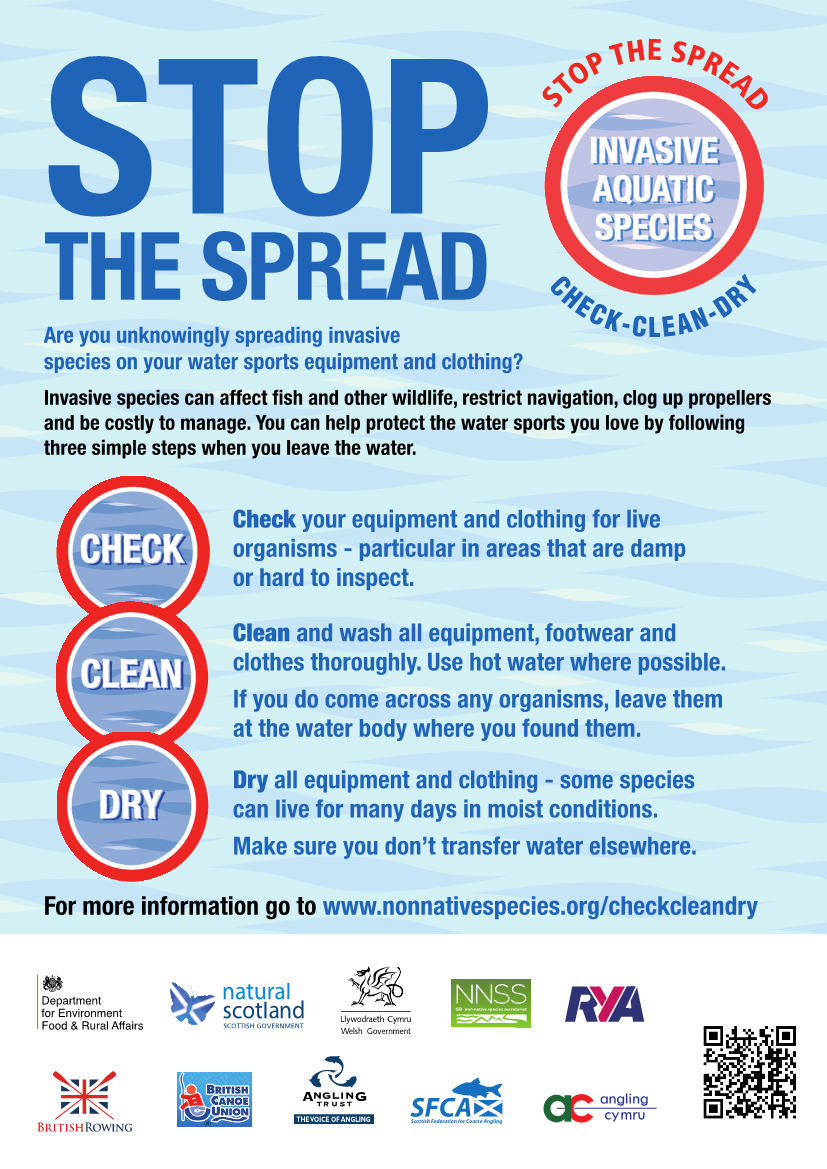
Campaigns
Angling Trust calls for more boots on the ground to enforce existing laws on pollution
The Angling Trust is calling on the government to back its pledges to improve the environment and clean up rivers by providing extra funding to crackdown on polluters.
Following a 50% reduction in its budget for monitoring and enforcement in the past 10 years, the Environment Agency does not have the staff or resources to investigate and take action when a pollution incident is reported, says the Trust’s Head of Campaigns Stuart Singleton-White.
“We need trained enforcement staff out in our river catchments, visiting farms, inspecting slurry storage and farming practices, to ensure that pollution incidents are stopped before they happen,” said Singleton-White. “We need good old-fashioned boots on the ground enforcing the laws that are meant to protect our rivers.”
In recent weeks, the government has announced a raft of measures designed to improve the environment including:
- An increase in Natural England’s budget of over 40%.
- Additional resource through the Green Recovery Fund.
- An extra £2.8 million agreed by Ofwat for investment by water companies.
- A range of tree planting programmes.
- Funding commitments through the Environmental Land Management schemes being rolled out to farmers in coming years.
Coupled with these is the government’s pledge to tackle raw sewage pollution in rivers by requiring more reporting on spills from Combined Sewer Overflows (CSOs), and long-term commitments through the 25-year Environment Plan and Net-Zero Carbon Emissions by 2050.
But too many of these initiatives risk being undermined or falling short of their intended objective because the most basic of needs is not being met. When a pollution incident is reported it is critical that there are staff and resources to investigate, take action to minimise the impact and then take the polluter to task.
That simply does not happen at present because the Environment Agency, the regulator charged with monitoring the state of our freshwater environment and enforcing the rules when they are broken, is not able to do its job. Since 2010, it has seen its budget for monitoring and enforcement around the quality of our waters reduced by more than half. Staff have been lost and the skills and knowledge needed have gone with them.
Speaking at the 2021 Orvis Mayfly Festival, Singleton-White said: “The Angling Trust’s Anglers Against Pollution campaign has one simple demand – give the Environment Agency the resources they need to do the job. All this new money and new initiative coming out of government on almost a daily basis, is fine. But if you don’t get the fundamentals right, how can you know if is it doing any good? Will any of it improve the overall state of our rivers?”
With only 14% of the UK’s rivers meeting good ecological status and not one meeting good chemical status, the need for more effective monitoring and greater enforcement for those who break the rules is urgent.
Singleton-White added: “There has been a lot of coverage on sewage in our rivers and that needs to be tackled, but the biggest source of pollution is agriculture. Farming accounts for 31% of the pollution getting into our rivers, and yet, a farm is likely to get a visit from the EA to check compliance on average once every 263 years. That is no incentive at all for farmers to comply with the rules. This is simply caused by a lack of resources leading to a regulator that has been neutered.
“The EA needs to be given the resources to do the job and held to account if it doesn’t deliver. The government seems, at last, to be willing to spend money to support the recovery from the Covid pandemic through investment in our environment and a green economy. It has the laws; it has the powers to work wonders for our freshwater environments and the wildlife that depends on it. It must give the EA the resources to do its job and the EA needs to step up to the plate and act decisively. Then and only then will they help restore the wildlife rich rivers and lakes for us all to value and enjoy.”
You might also like

WORLD CHAMPS GOLD FIRMLY IN THE SIGHTS OF ENGLAND…

We Fish as One supports Pride Month 2025

Sunglasses giant backs Angling Trust

Join in with the Check, Clean, Dry campaign this…

From TikTok to the classroom – Orchard School follows…

DRENNAN ENGLAND FEEDER TEAM WIN WORLD CHAMPS!

Family fishing at Aston Park Fisheries where have a…

FOURTEEN SIDES ALREADY THROUGH TO SUPERCUP ROUND 2!

SIXTH FOR ENGLAND AT FLY WORLD CHAMPS

Much needed new European Management Plan for Cormorants moves…

A Turning Tide: Why Ending Bottom Trawling in MPAs…

How to start river fishing – beginner’s guide for…

WORLD CHAMPS GOLD FIRMLY IN THE SIGHTS OF ENGLAND…

We Fish as One supports Pride Month 2025

Sunglasses giant backs Angling Trust

Join in with the Check, Clean, Dry campaign this…

From TikTok to the classroom – Orchard School follows…

DRENNAN ENGLAND FEEDER TEAM WIN WORLD CHAMPS!

Family fishing at Aston Park Fisheries where have a…

FOURTEEN SIDES ALREADY THROUGH TO SUPERCUP ROUND 2!

SIXTH FOR ENGLAND AT FLY WORLD CHAMPS

Much needed new European Management Plan for Cormorants moves…

A Turning Tide: Why Ending Bottom Trawling in MPAs…

How to start river fishing – beginner’s guide for…

WORLD CHAMPS GOLD FIRMLY IN THE SIGHTS OF ENGLAND…

We Fish as One supports Pride Month 2025

Sunglasses giant backs Angling Trust

Join in with the Check, Clean, Dry campaign this…

From TikTok to the classroom – Orchard School follows…

DRENNAN ENGLAND FEEDER TEAM WIN WORLD CHAMPS!

Family fishing at Aston Park Fisheries where have a…

FOURTEEN SIDES ALREADY THROUGH TO SUPERCUP ROUND 2!

SIXTH FOR ENGLAND AT FLY WORLD CHAMPS

Much needed new European Management Plan for Cormorants moves…

A Turning Tide: Why Ending Bottom Trawling in MPAs…









